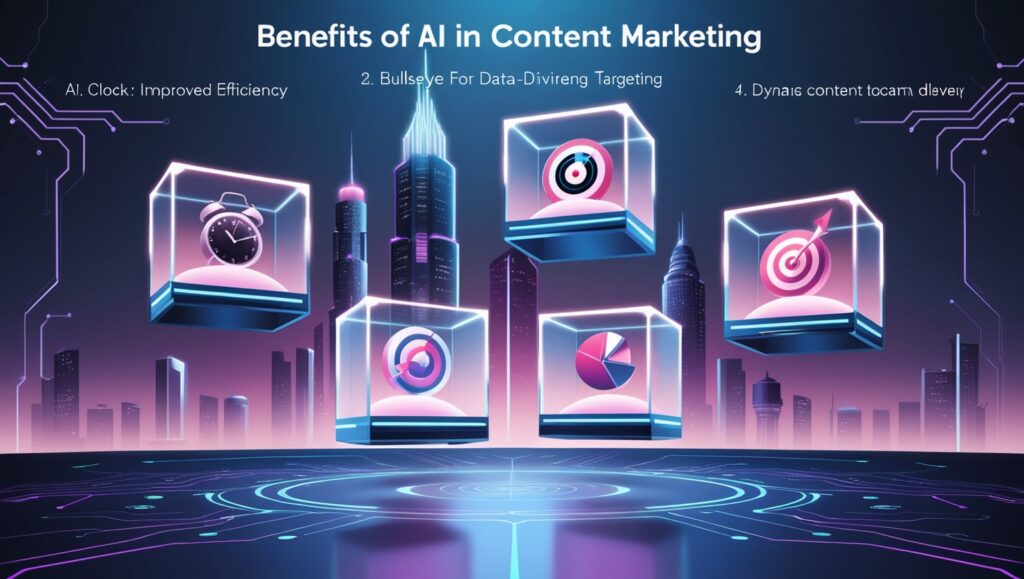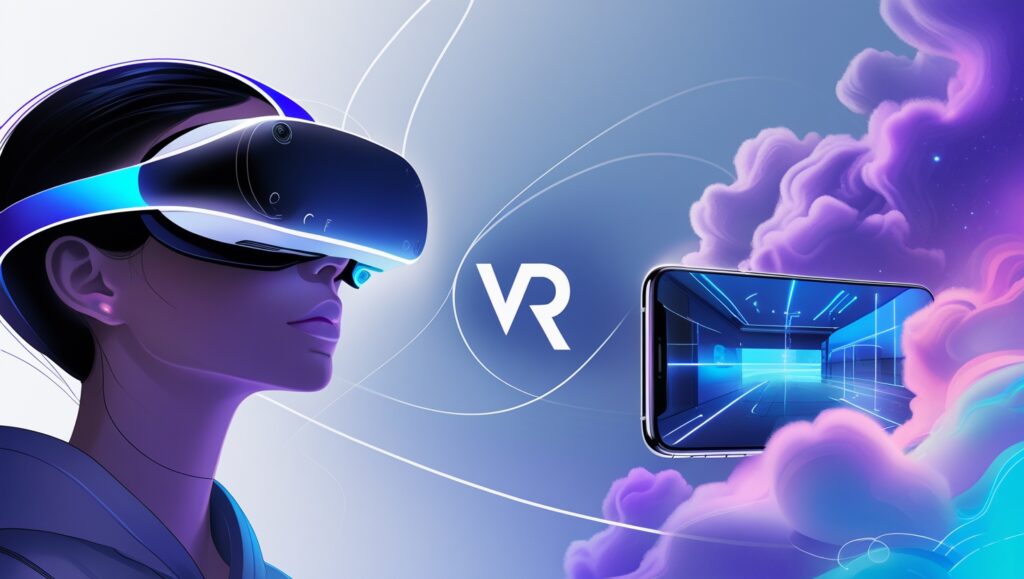AI in Content Marketing: Transforming Strategies and Driving Engagement
Introduction
Content marketing has emerged as a cornerstone of modern business strategies, enabling brands to connect with their audiences, drive engagement, and foster loyalty. However, as the digital landscape becomes increasingly saturated, marketers face challenges in standing out and delivering personalized experiences. Enter Artificial Intelligence (AI), which has revolutionized content marketing by optimizing processes, improving targeting, and providing actionable insights. This blog explores the transformative role of AI in content marketing, the tools shaping the industry, and the challenges and opportunities it presents.

How AI Is Revolutionizing Content Marketing
1. Audience Insights and Segmentation
AI-powered analytics tools can analyze vast datasets to:
- Identify audience demographics, preferences, and behavior patterns.
- Segment users based on purchasing habits, interests, and engagement levels.
- Predict future trends and audience needs for proactive marketing.
For example, tools like HubSpot and Marketo use AI to deliver hyper-targeted campaigns by identifying niche audience segments.
2. Content Personalization
Personalization is key to engagement, and AI excels in:
- Delivering personalized content recommendations on websites and apps.
- Creating tailored email campaigns based on user behavior and preferences.
- Adjusting messaging in real-time for optimal engagement.
Netflix’s recommendation algorithm is a prime example of AI-driven personalization, keeping users engaged with highly relevant suggestions.
3. Predictive Analytics
Predictive analytics allows marketers to anticipate customer needs and behaviors. AI can:
- Analyze historical data to predict future trends.
- Optimize campaign timing and messaging for maximum impact.
- Identify high-value leads likely to convert.
AI Tools for Content Marketing
1. Content Creation and Optimization
- SEMrush and Surfer SEO: Help create SEO-optimized content by analyzing keywords and competitor strategies.
- Jasper AI: Generates marketing copy, blog posts, and ad text tailored to specific audiences.
2. Campaign Automation
- HubSpot: Automates email marketing, lead nurturing, and social media scheduling.
- Marketo: Enhances customer journeys with AI-driven automation and analytics.
3. Data Analysis and Insights
- Google Analytics 4 (GA4): Uses AI to provide insights into user behavior and campaign performance.
- Tableau: Visualizes complex marketing data for strategic decision-making.
4. Chatbots and Conversational AI
- Drift and Intercom: Enable real-time customer interactions and lead generation through AI-powered chatbots.
Benefits of AI in Content Marketing

1. Improved Efficiency
AI automates repetitive tasks like data analysis, email scheduling, and A/B testing, allowing marketers to focus on strategy and creativity.
2. Enhanced Targeting
With AI, marketers can deliver highly targeted campaigns, ensuring the right message reaches the right audience at the right time.
3. Data-Driven Decision-Making
AI provides actionable insights from complex datasets, enabling marketers to make informed decisions that drive ROI.
4. Dynamic Content Delivery
AI adapts content in real-time based on user interactions, ensuring relevance and engagement.
Challenges of AI in Content Marketing
1. Data Privacy Concerns
AI relies on extensive user data, raising concerns about privacy and compliance with regulations like GDPR and CCPA.
2. Integration Complexities
Integrating AI tools with existing marketing systems can be challenging, requiring technical expertise and resources.
3. Cost of Implementation
While AI tools can save money in the long run, the initial investment and setup can be prohibitive for small businesses.
4. Risk of Over-Automation
Over-reliance on AI can lead to generic campaigns that lack the human touch, reducing emotional connection with audiences.
Case Studies: AI in Content Marketing Success
1. Coca-Cola
Coca-Cola uses AI to analyze social media trends and consumer behavior, enabling them to craft highly targeted marketing campaigns.
2. Amazon
Amazon’s recommendation engine, powered by AI, drives a significant portion of its sales by suggesting products tailored to individual preferences.
3. Spotify
Spotify leverages AI to create personalized playlists like “Discover Weekly,” enhancing user engagement and satisfaction.
The Future of AI in Content Marketing
As AI technology continues to evolve, its role in content marketing will expand. Future trends include:
- Voice Search Optimization: With the rise of smart speakers, AI will play a crucial role in optimizing content for voice search.
- Hyper-Personalization: AI will enable even more precise targeting, delivering one-to-one personalized experiences.
- Advanced Sentiment Analysis: Marketers will use AI to gauge audience emotions and adjust campaigns in real-time.
- AR and VR Integration: AI will power immersive content experiences through augmented and virtual reality technologies.
Conclusion
AI has fundamentally transformed content marketing, offering unprecedented opportunities for efficiency, targeting, and engagement. By leveraging AI tools and strategies, marketers can create more impactful campaigns that resonate with their audiences. However, the journey is not without challenges, including data privacy concerns and the need for a balanced approach to automation.
As AI technology continues to advance, the brands that embrace its potential while maintaining a human-centric approach will lead the way in delivering exceptional content marketing experiences.









